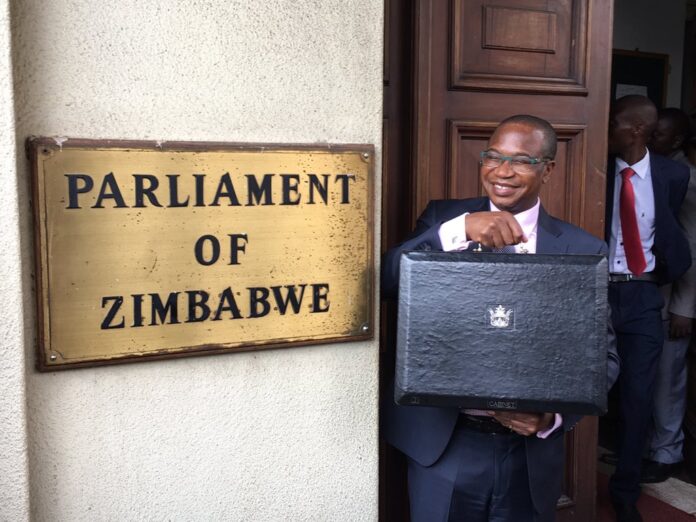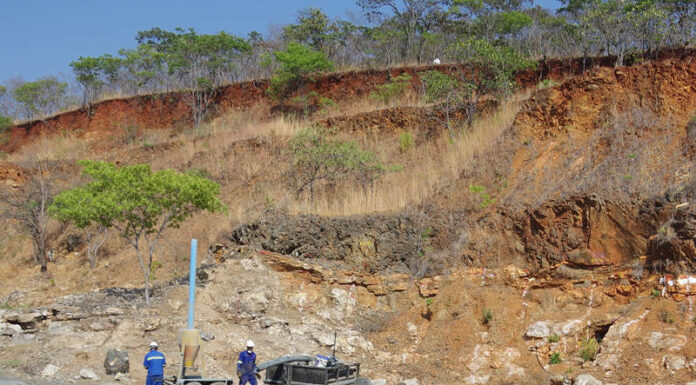Farai Mabeza
Finance and Economic Development Minister, Mthuli Ncube, has predicted a drastic fall in annual inflation in 2021 and proposed new taxes for the informal sector among other highlights in his 2021 budget statement.
Ncube said that among its efforts to keep inflation low, Government would be embracing reforms on enhancing efficiencies of public utilities. This will be designed to ensure that the shocks on inflation from the utilities are minimised.
“In the outlook, annual inflation is expected to drastically slow down to an average of below 135% in 2021, while average month-on-month inflation is expected to be below 1%,” Ncube said.
There has been significant slow-down in inflation as from August 2020. Year-on-year inflation in local currency for the month of October declined to 471% from 659% in September 2020, while month-on-month stood at 4.4%.
Similarly, blended year-on-year inflation, which measures the combined price changes of goods and services in both the ZWL$ and US$ declined to 249% from 376% during the same period, while blended month-on-month inflation stood at 1.4% by October 2020.
Further consolidation of stabilisation measures in the last quarter of 2020 will see month-on-month inflation closing the year at around 2% and the respective annual inflation at around 336%.
Ncube reiterated that government was committed to continue with the foreign exchange auction system, which has been credited with discovering and establishing the current exchange rate, restraining the speculative pass-through effects of the exchange rate on prices and dampened inflation pressures in the process.
“In 2021, the exchange rate is expected to remain stable, supported by the auction market exchange rate system and improved supply of foreign currency as the economy and trade, pick up”.
On the informal sector Ncube set a tax of US$30 per unit per month for Micro and Small Enterprises and Informal Operators who operate from designated business premises with effect from January 1, 2021. The tax will be collected by landlords
This follows a proliferation of the subdivisions of business premises in urban centres to accommodate as many tenants as possible.
Landlords housing the small business operators will also collect taxes from hairdressers (ZWL$2 500/month), restaurants (ZWL$10 000/month), bottle store operators (ZWL$10 000/month) and cottage industry (ZWL$10 000).
The 2021 budget is worth ZWL$421.6 billion, capital expenditures constitute ZWL$131.6 billion (5.5% of GDP), while current expenditures are expected to consume ZWL$290 billion (12.1% of GDP).
Some of the key allocations under the 2021 budget are goods and services (ZWL$59.4 billion), employment costs (ZWL$142.6 billion), interest (ZWL$1.5 billion) and transfers (ZWL$86.5 billion), with the balance reserved for capital development programmes.
It targets a fiscal deficit of -1.3% of GDP in line with the National Development Strategy 1’s fiscal consolidation objectives which strictly limit the fiscal targeted deficit to below 2% of GDP. The targeted deficit is also within the SADC macroeconomic convergence threshold of below 3% of GDP.
Attainment of the targeted deficit will also allow containment of the public debt of about 64% of GDP, which is within the 70% of GDP stipulated in the Public Debt Act and within reach of the SADC recommended threshold of 60% of GDP, compared to the current 78%.
To attain these targets, Ncube’s wants fiscal policy to continue to prioritise revenue enhancement measures, whilst pursuing expenditure management thrust initiated from 2018 on the launch of the Transitional Stabilisation Programme.
The treasury chief said these measures will revolve around strict observance of the budget and Public Finance Management Act rules and borrowing only for the budgeted expenditures and through market-based operations
He emphasised that there will be no more recourse to Central Bank overdraft and other windows while there will be a gradual reduction of the wage bill from current levels (of around 50% of total expenditures) towards 30% of total expenditures and below 10% of GDP.
Other measures will include continuous review and rationalisation of public service posts, rolling of PFMS controls to all departments and local levels, adherence to new Procurement Act rules, minimising subsidies that are targeted and accommodated in the budget, complete migration of the Public Service Pension scheme from Pay-As You-Go- pension to Defined Benefit Pension Scheme and continued strengthening of taxation systems with a view of enhancing collection efficiency, sealing leakages, support productive sectors and manage consumption.
Starting in 2021 Zimbabwe will start working on increasing its agriculture output to US$8.2 billion by 2025. Ncube allocated ZWL$46.3 billion to Ministry of Lands, Agriculture, Water, Climate and Rural Resettlement.
The 2021 budget has set aside ZWL$14.4 billion for the Ministry of Higher & Tertiary Education, Science and Technology Development, of which ZWL$4.3 billion is for infrastructure development.
The Ministry of Health and Child Care has been allocated ZWL$54.7 billion while Primary and Secondary Education will receive ZWL$55.2 billion.
Defence, Security and War Veterans got ZWL$23.8 billion while Home Affairs and Cultural Heritage, received ZWL$23.6 billion.
The 2021 National Budget has also set aside ZWL$3.6 billion for operations and capital requirements of institutions involved in the fight against corruption which include the Zimbabwe Anti-Corruption Commission, the National Prosecuting Authority, the Zimbabwe Republic Police (Minerals, Flora and Fauna Unit), the Auditor General and the Procurement Regulatory Authority of Zimbabwe.
Ncube anticipates a budget deficit of ZWL$4.9 billion in 2021 and expects the economy to grow by 7,4% and 5% annually 2021 beyond from a projected contraction of 4,1 percent this year which will be due to the effects of the COVID-19 pandemic.
In terms of the economy, a GDP contraction of -4.1% is anticipated by year end, taking into account latest information indicating improving capacity utilisation than earlier anticipated and this particularly relates to the manufacturing sector.
In line with economic rebound projected in 2021, formal employment is projected to grow with about 150 000 formal jobs are expected to be recovered after having been lost due to COVID-19 pandemic. Similarly, incomes are also expected to rise, with per GNI per capita expected to increase to US$1 835 from current levels of US$1 156.










